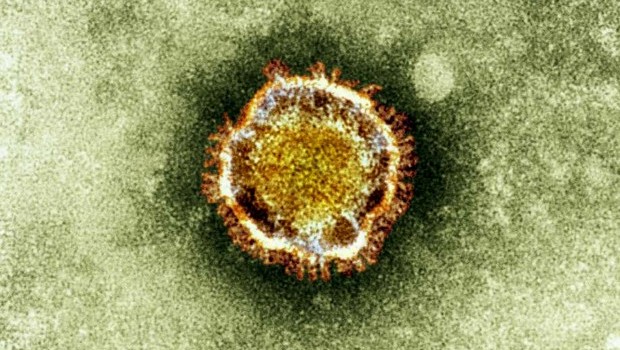
This undated image released by the British Health Protection Agency shows an electron microscope image of a coronavirus, part of a family of viruses that cause ailments including the common cold and SARS, which was first identified last year in the Middle East. (AP Photo/Health Protection Agency)
Jeddah and London, Asharq Al-Awsat—As two more people were reported dead on Wednesday in Jeddah from the MERS coronavirus, as a high-level source in the Saudi Health Ministry reported that the average age of people being infected is dropping.
The Middle East Respiratory Syndrome (MERS) was first reported in Saudi Arabia in 2012. According to the last statistics from the Saudi Health Ministry, approximately 180 people have been infected since September 2012, with at least 66 dying. The relatively high fatality rate of the virus is due to patients often being elderly or suffering underlying medical conditions.
A Health Ministry source, speaking to Asharq Al-Awsat on the condition of anonymity, said that the average age of those being infected by the virus is decreasing, adding that over the past four months the average age of those infected was between 35 and 40 years of age.
Saudi Deputy Minister of Health Dr. Ziad Memish told Asharq Al-Awsat: “The disease is still unknown . . . and the majority of cases recorded until now [were in people who] suffered from other conditions and were elderly.”
Memish stressed that the Saudi Health Ministry is complying with all the precautions recommended by the World Health Organization to stop the spread of the virus. He sought to play down the recent spate of MERS cases in Saudi Arabia, saying that the overall number of people who have been killed by the coronavirus is less than the number of people who die from seasonal flu in the US.
Mohsen Al-Awaji, the chairman of the Shura Council’s health committee, also said that the Health Ministry has done everything in its power to deal with the virus and was implementing the safety precautions recommended by international bodies. He acknowledged that MERS is infecting younger people, telling Asharq Al-Awsat that this is “a source of concern.”
The Saudi Health Ministry on Wednesday said it had recorded 11 MERS cases, reporting that two patients had died and six had recovered. Three people are still undergoing treatment. Those infected included hospital staff and health care professionals. The emergency department of Jeddah’s King Fahd Hospital was subsequently closed for disinfection after health workers there tested positive for MERS. A health worker at the King Abdulaziz Hospital in Jeddah also tested positive for the virus, local news reported.
There has been a heightened state of fear in Jeddah about the virus in recent days, with residents warning against visiting hospitals. Pharmacists have also reported an increase in the sale of surgical masks.
Said Al-Abyad contributed reporting from Jeddah.
